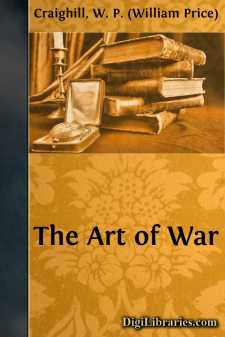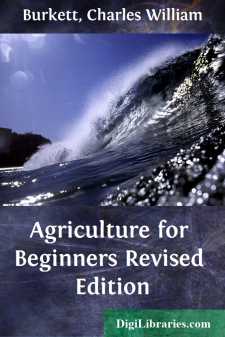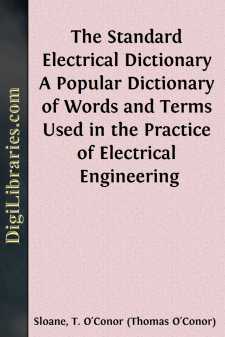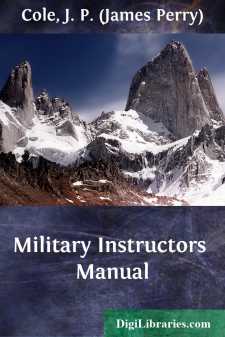Technology & Engineering
Technology & Engineering Books
Sort by:
INTRODUCTORY Electricity, like every science, presents two phases to the student, one belonging to a theoretical knowledge, and the other which pertains to the practical application of that knowledge. The boy is directly interested in the practical use which he can make of this wonderful phenomenon in nature. It is, in reality, the most successful avenue by which he may obtain the theory, for he learns...
more...
CHAPTER I. STATESMANSHIP IN ITS RELATION TO WAR. Under this head are included those considerations from which a statesman concludes whether a war is proper, opportune, or indispensable, and determines the various operations necessary to attain the object of the war. A government goes to war,— To reclaim certain rights or to defend them; To protect and maintain the great interests of the state, as...
more...
Since its first publication "Agriculture for Beginners" has found a welcome in thousands of schools and homes. Naturally many suggestions as to changes, additions, and other improvements have reached its authors. Naturally, too, the authors have busied themselves in devising methods to add to the effectiveness of the book. Some additions have been made almost every year since the book was...
more...
No description available
CHAPTER I Our object in reading and studying this book is to find out some facts that will help those of us who are thinking of going into farming and gardening as a business or recreation to start right, and will also help those of us that are already in the business to make our farms and gardens more productive. In order to make the book of greatest value to you, I would urge you not only to read and...
more...
by:
Michael Faraday
Induction of Electric Currents. 6. About twenty-six feet of copper wire one twentieth of an inch in diameter were wound round a cylinder of wood as a helix, the different spires of which were prevented from touching by a thin interposed twine. This helix was covered with calico, and then a second wire applied in the same manner. In this way twelve helices were superposed, each containing an average...
more...
CHAPTER 2. Infantry Drill Regulations. The greatest lesson of the present war is that the keynote of success is discipline. In trenches the direct control of the men is even less than in extended order in open warfare, and only thoroughly disciplined troops with a trusted leader can hope to succeed. The successful officer will show anger or irritation only in rare cases, and then by design: he will...
more...
APPARATUS 1. 1. Carbon-Zinc Cell. Fig. 1. If you have some rubber bands you can quickly make a cell out of rods of zinc and carbon. The rods are kept apart by putting a band, B, around each end of both rods. The bare wires are pinched under the upper bands. The whole is then bound together by means of the bands, A, and placed in a tumbler of fluid, as given in . This method does not make first-class...
more...
CHAPTER I IT IS an old saying that "any fool can farm," and this was almost the truth when farming consisted chiefly in reducing the fertility of new, rich land secured at practically no cost from a generous Government. But to restore depleted soils to high productive power in economic systems is no fool's job, for it requires mental as well as muscular energy; and no apologies should be...
more...
by:
George Iles
PREFACE To a good many of us the inventor is the true hero for he multiplies the working value of life. He performs an old task with new economy, as when he devises a mowing-machine to oust the scythe; or he creates a service wholly new, as when he bids a landscape depict itself on a photographic plate. He, and his twin brother, the discoverer, have eyes to read a lesson that Nature has held for ages...
more...











